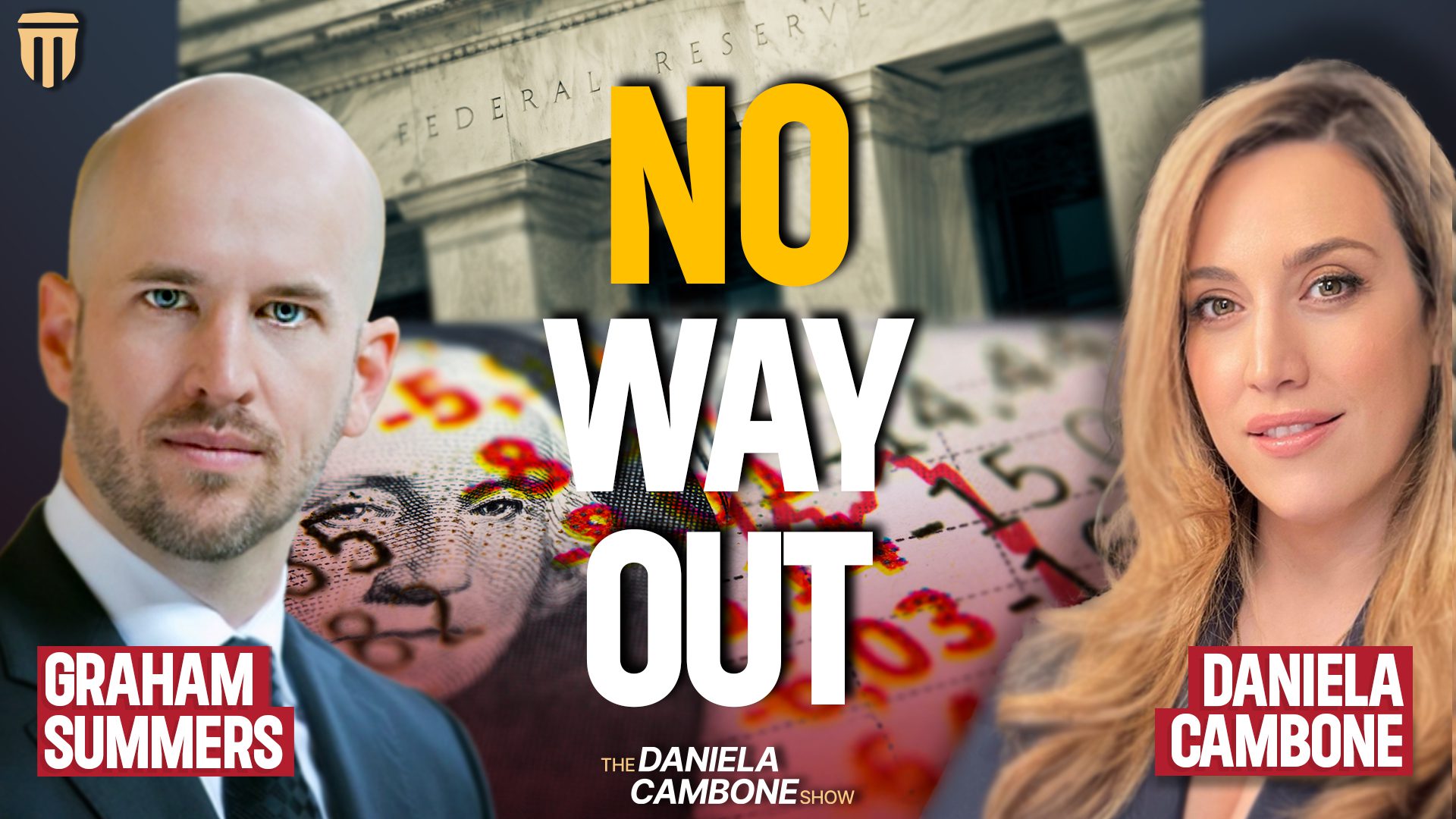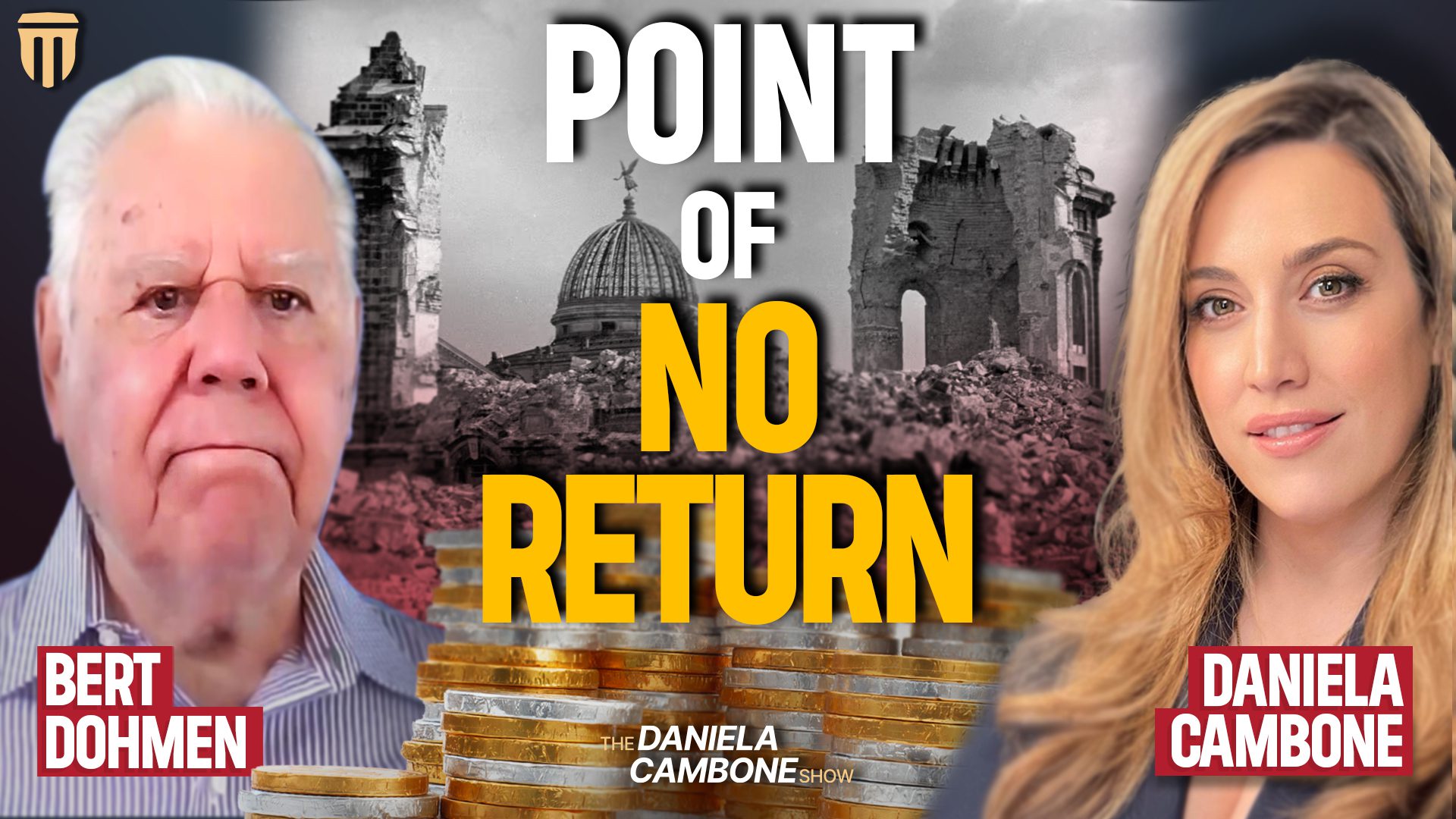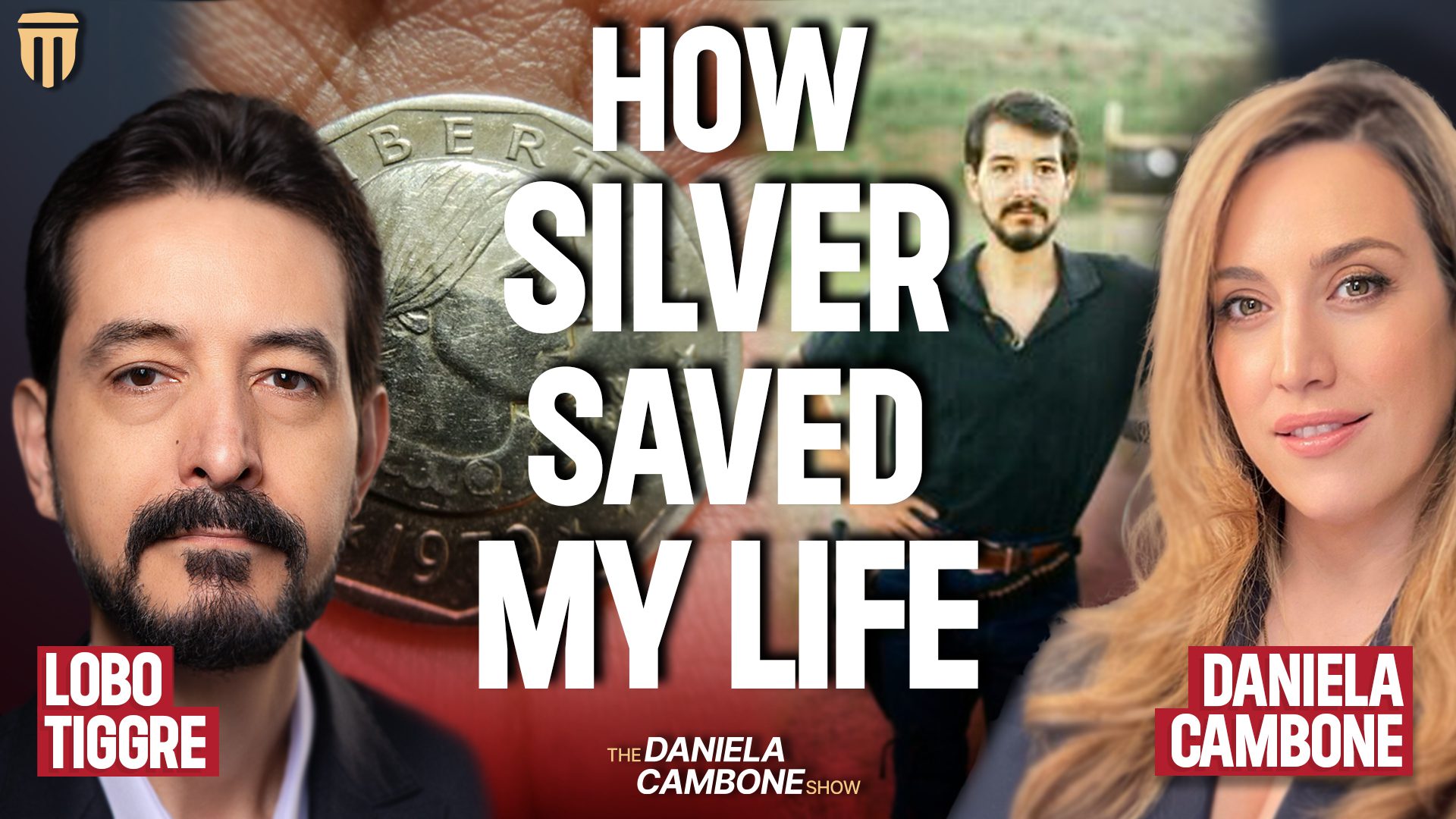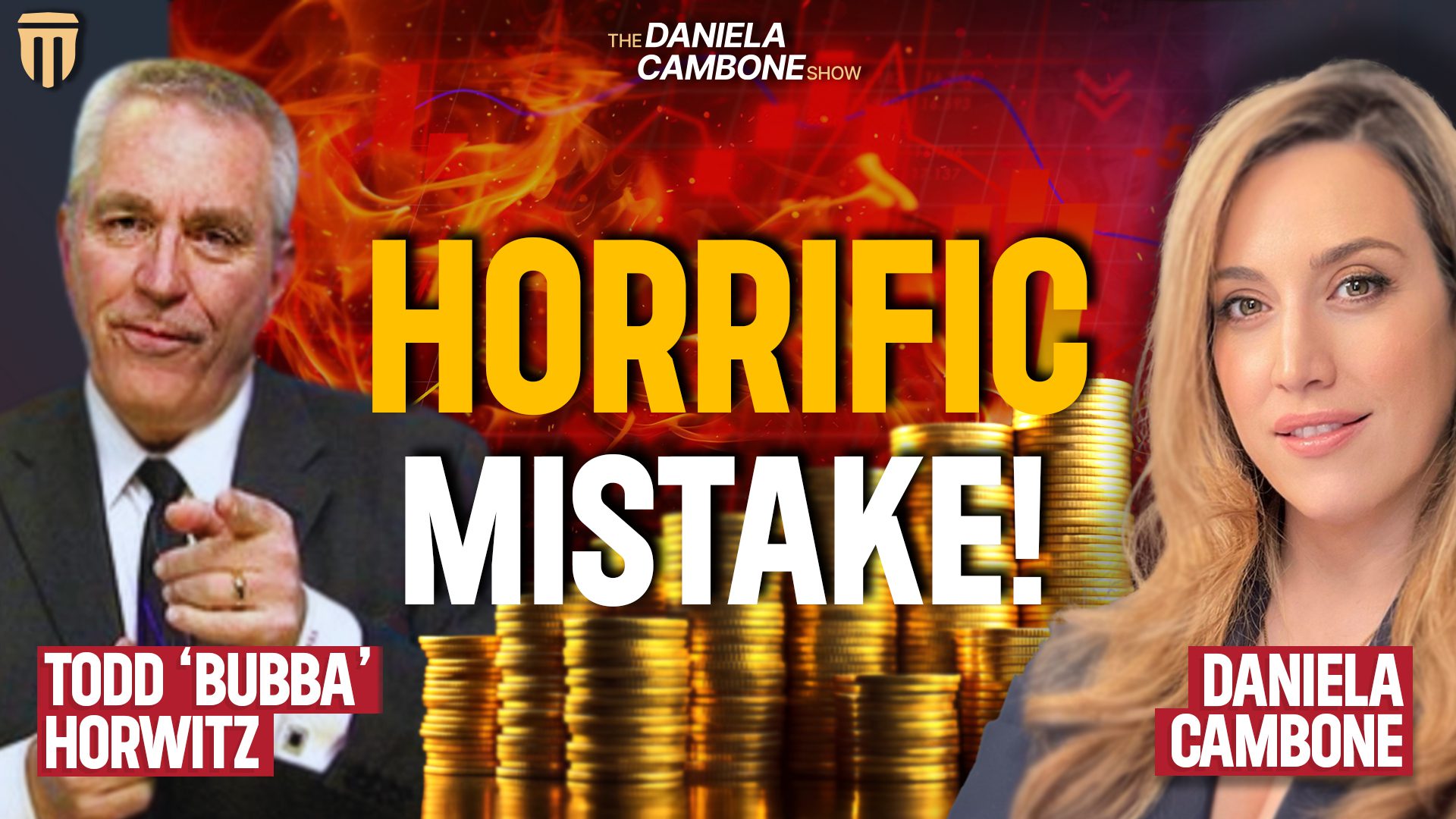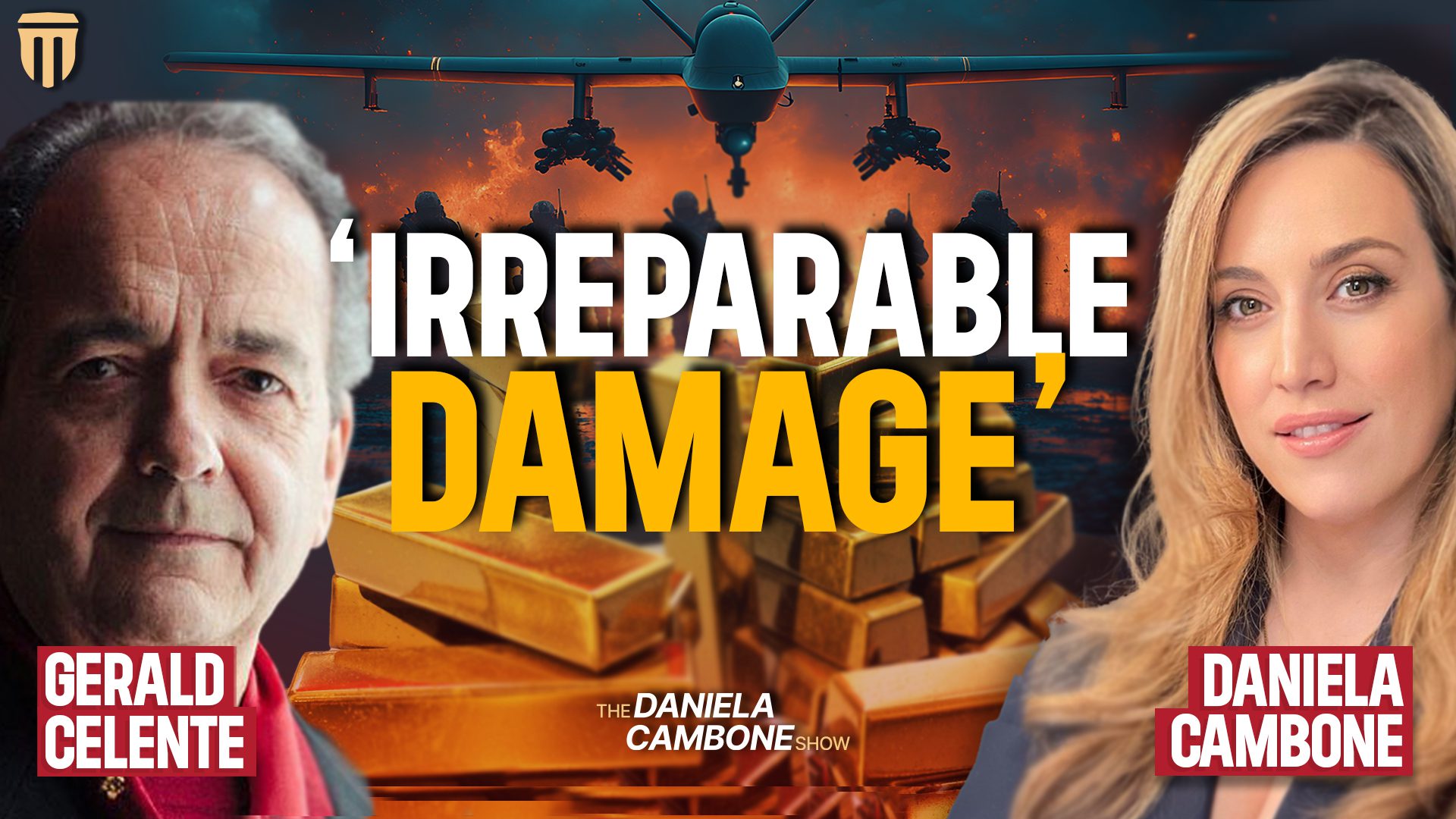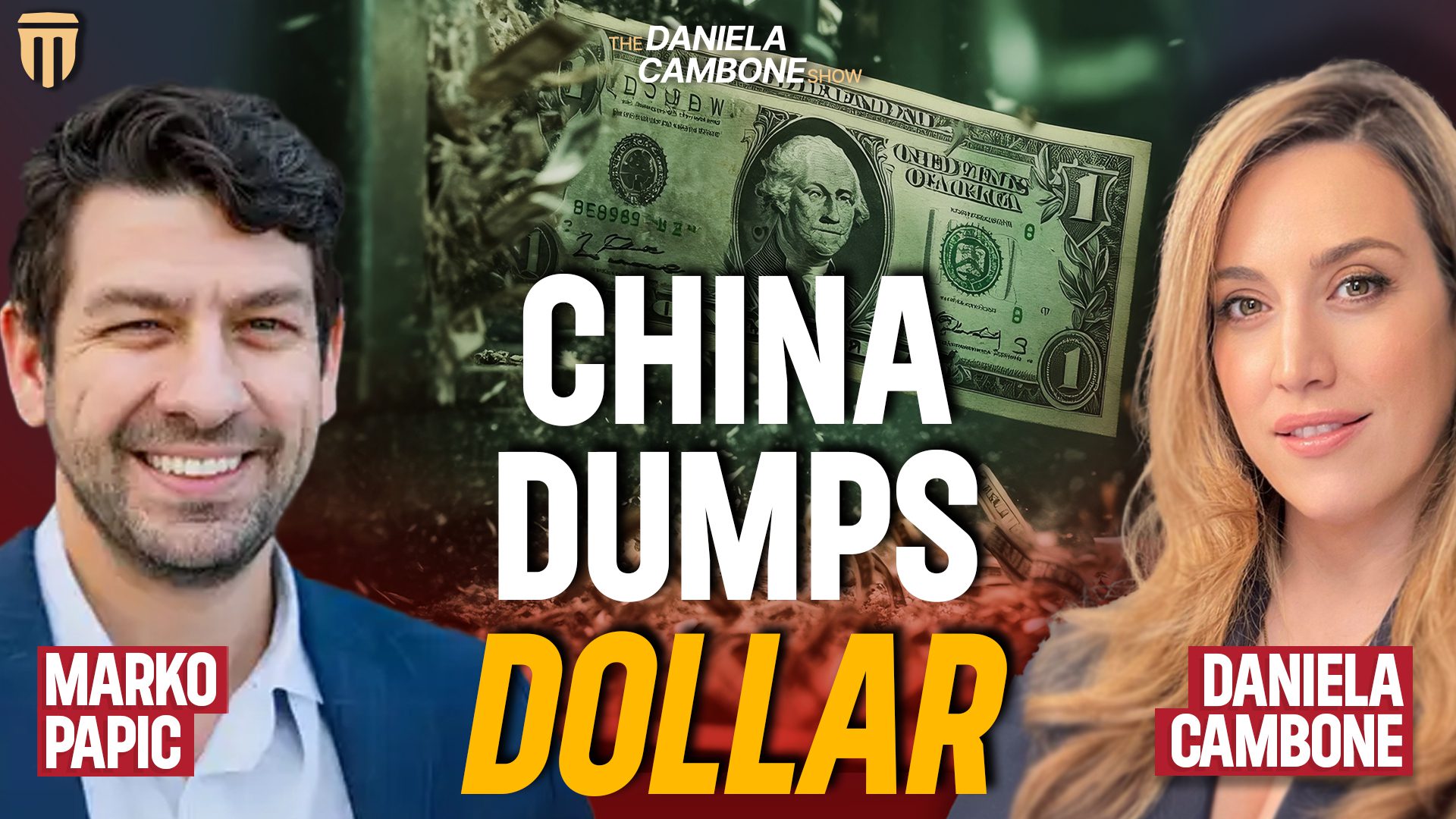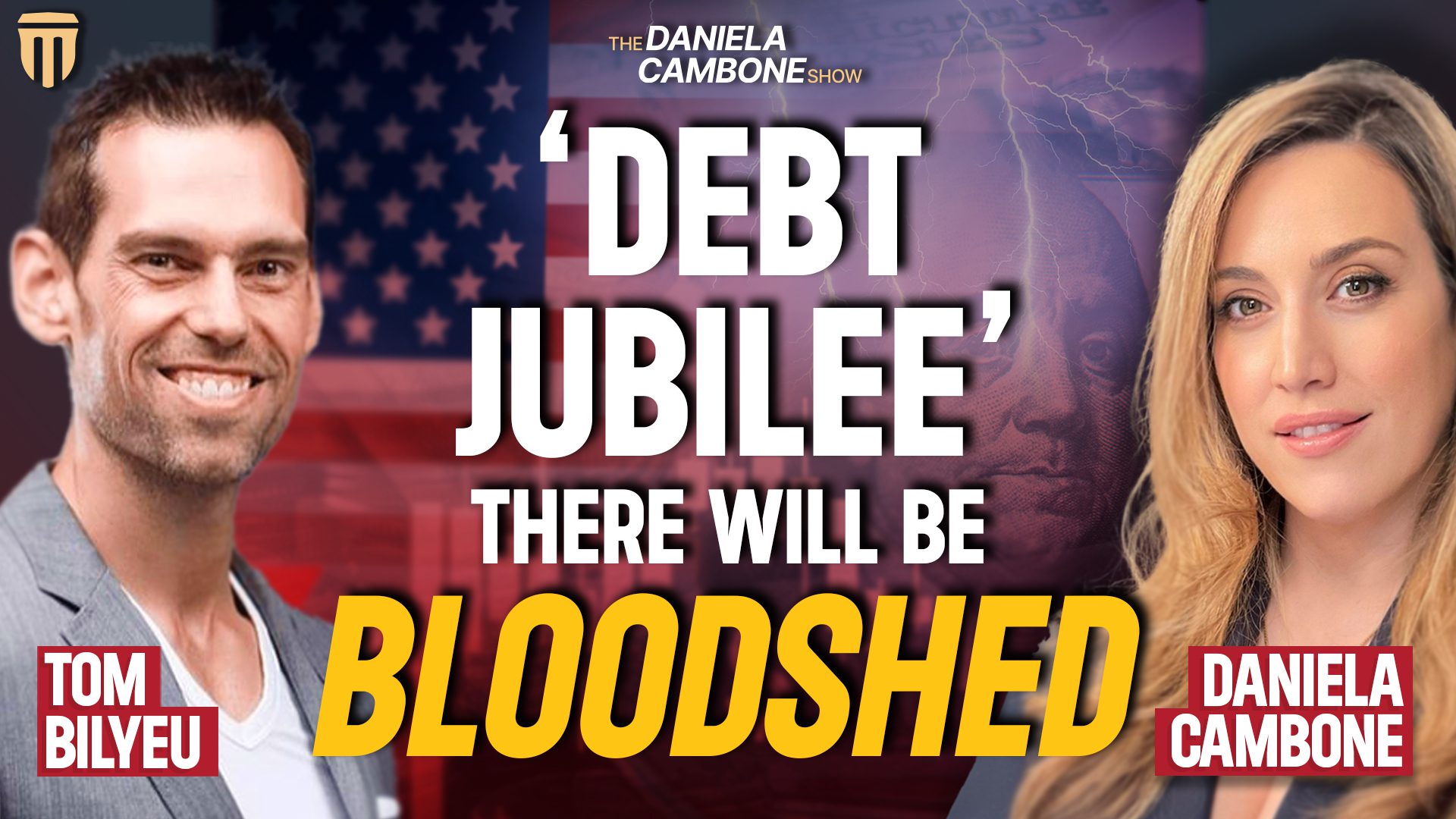Crash Landing Ahead? Fed May Cut Rates but We’ve Run Out of Time
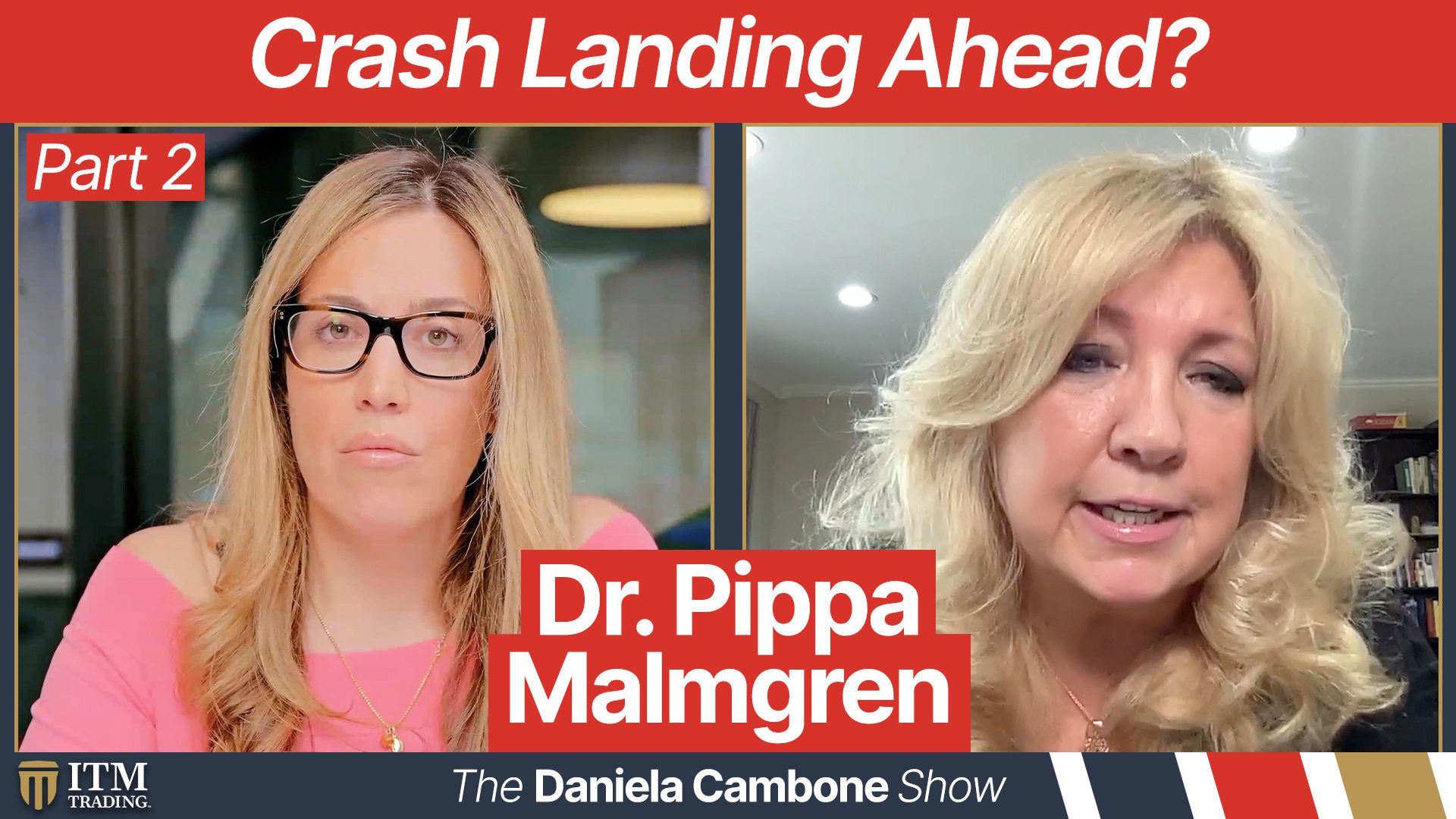
“We’re pretty much running out of time for them to do a rate cut,” says Dr. Pippa Malmgren, American entrepreneur, economist, and presidential advisor, in the second part of her interview with Daniela Cambone. Malmgren explains that it’s less likely for the Fed to cut rates before the presidential election because they would risk being accused of “helping the incumbent” if they do. Additionally, she notes that rate changes usually occur when there’s a clear signal of where the economy is headed, but before an election is not the opportune time. She further emphasizes that rate hikes didn’t significantly alter liquidity conditions. Malmgren also shares her perspective on current affairs, suggesting that World War III will be an invisible technological war. “We’re in a world where this battle may not involve hand-to-hand combat, but rather power grids going down or other significant events.”
TRANSCRIPT FROM VIDEO:
00:08
Daniela Cambone here from the Daniela Cambone Show. I hope you caught part one of our conversation with Dr. Pippa Malmgren, one of the world’s most renowned economists. She joins us now for part two, where we get into the Fed and what you need to be doing in this current environment. Check it out. I wanna get to part two now, really focused on your thoughts on the Federal Reserve. And I just wanna wrap and bring this all home.
00:37
for the folks watching of, you know, things that we should be doing on a daily basis to prepare and deal with this world ahead. And I realize that’s a loaded question, but let’s start with the simple stuff, the Fed. And I love how you say, I have a question. If conflict is inflationary and everybody from NATO to the FBI keeps saying we are on the brink of more conflict, how can rate cuts possibly happen?
01:07
Good point. That is my question. And why does no one talk about this piece? Why does no one talk about this? I don’t know. I think because we compartmentalize. So we think, well, I just do financial markets and this military strategic security thing is over there. And I can dive in sometimes, talk about it because it’s interesting, but it’s not my bailiwick. It’s not my turf. That’s because people are so in their own lanes, but.
01:35
Everything requires looking across the landscape and connecting the dots. We can no longer find the answers by being inside these siloed, narrow, traditional ways of thinking about things. Um, this requires original thinking and that means taking a bigger perspective on reality.
02:01
So if the Fed cannot really cut rates, how, I mean, what spin does that put on the election? I mean, there’s pressure to start cutting rates. Well, look, I actually think we’re pretty much running out of time for them to do a rate cut because.
02:26
they’re always going to be at risk of the accusation that they cut rates to help the incumbent, which usually a rate cut would. So normally they’re not changing rates within six months of a presidential election. That’s always been the kind of unspoken rule. So will that happen? If they break that rule, there are gonna be a whole lot of questions and screaming about that. Second,
02:55
It’s very difficult time to change rates because the election itself introduces lots of uncertainty. When you’re moving rates around, you’re trying to do it at a time when you get the clearest possible view of the impact. That’s why they don’t typically do rate moves around Christmas, Thanksgiving and Christmas, because those are the biggest spending seasons of the year. And you don’t want to throw a new signal at the public. You’re trying to understand what are they doing with the existing signal?
03:23
So in this sense, we’re running out of time anyway. Second of all, I think that the, we have to understand where we really are in the game. And I have a very unusual view, which is, yes, we’ve had rate hikes, but they’re not really tightening because we had such a massive infusion of liquidity through
03:51
zero interest rates and money printing and all kinds of policy stances that it’s like when you spill a whole bunch of milk or think of this as you go to the ocean and you say, okay, we’re taking a cup out of the ocean and that’s called a rate hike. And everyone screams, ah, it’s a rate hike. I’m terrified of rate hikes. Don’t give me a rate hike. But it’s a cup out of an ocean. It didn’t actually really change the liquidity conditions.
04:20
What it has done is it’s forced the business community to get on a running machine and to raise the incline of the running machine. And that’s basically after the government gave everybody free donuts for a very, very prolonged period. Then nobody likes to go from free donuts, which was a lot of fun, to raising the incline on the running machine. But the reality is it does make you healthier to do this. Is it going to kill you? Well, it will kill some.
04:50
who were so profoundly unhealthy that they were never gonna make it anyway. And it makes the ones who are healthy stronger. So one thing it does is it shifts our attention away from unicorns, right? Everybody wanted to be part of a unicorn. That’s like part of a world where there’s free money everywhere. Now what we’re all interested in as a workhorse, that’s a company that makes genuine unimpaired cashflow. They are making real things with real customers and real money. And is that a better…
05:20
Position to be in, yes it is. But have we really tightened the monetary conditions? We have a little bit, but actually not very much, but we had a lot of screaming about it.
05:36
Powell came out saying he doesn’t want to hear anymore about talk of stag or flation. And you’re right. The all-important court, PCE, for Q1 soared from 2 to 3.7%, blowing away estimates of 3.4% and suggesting that the US is about to not only not pass GO and overshoot soft landing
06:05
inflationary recession.
06:10
By the way, I have heard this ever since the bailout of the financial crisis. I was, I remember when the bailout happened, I was like, okay, inflation. We’re done. We know what’s coming. Inflation is coming. That is the result of negative interest rates, free money and printing money.
06:31
And people were like, you are out of your mind. Inflation is dead. It’ll never come back. I actually wrote a whole book about this saying inflation is coming back and geopolitics will come back with it. Cause they go hand in hand and people like, you’re crazy about this. Well, it took a little while, but here we are. Right. So this idea that we’re about to have a crash. I didn’t see it from the financial crisis to now.
06:58
And I bet the other way, which is the U S and North America is the strongest economy in the world. It will perform the best. It’s the most agile and the most adaptive. It changes. People are fast to make change. And by the way, Mexico has emerged as the new China. It’s the only country that is deeply integrated into the American supply chain, but with higher quality control than China, but they can work with China and the U S so
07:27
Mexico is like this incredible emerging market engine that has replaced China. It’s very hard for me to bet against the United States and other parts of the world have much worse problems. And I would argue that China is seriously up the creek right now and there’s no obvious way they get out of their trouble. In that world, people are going to keep gravitating to let me put my assets in the U S and finally we have the most technological innovation by far.
07:56
And the pace of technological change is so great that even the experts in fields can’t keep up with it. Everybody working on AI, everybody working on robotics, automation, autonomy. They’re like, even I can’t keep up with how fast it’s happening and where is it happening mainly in the United States. So I’m still not at all in the brace brace we’re about to crash. I’m, I’m in the opposite, which is if we get a deal on Ukraine, which I think is coming.
08:26
We’re going to get a piece of it in and the markets are going to go boom upward. So.
08:35
That said, I mean, you are one of the most renowned economic advisors, uh, you know, sought after, you know, globally. If you had to bring it home for the folks watching, right? Things that we should be doing, like you’re saying we don’t need to brace for a crash landing. So are your, your sounds like you’re bullish the American economy? I have been and continue to be. So I put it this way. Prediction is a terrible game.
09:02
It’s much smarter to focus on preparedness. Preparedness for a range of possibilities. I remember Bob Rubin when he was secretary of the treasury, he always brought this, you know, which was the way the Goldman Sachs trading floor always operated, don’t make a prediction. That’s an egotistical, arrogant certainty. That’s very dangerous. Focus on preparedness. So think of what is the wide range of possibilities and let’s think about what would happen.
09:30
Because the more you think about it, the better ready you are for it to happen. So I could see a world where most investors have been so worried about a crash, so prepared for a crash that never happens, and they are totally unprepared for the possibility that we get a peace deal over Ukraine and probably over Israel and even over Taiwan, because they’re all interrelated in my view.
09:59
It’s really a negotiation with China. And we ended up cutting some kind of a deal. And suddenly everybody goes, wait, the more we should be going up because we removed this geopolitical problem. And it’s basically a peace dividend. And we don’t often get peace dividends in history. And most people missed it. When the Soviet union fell apart, they didn’t immediately go, Oh, wow, this is a peace dividend. And bet the boat, right? Throw everything all in.
10:29
But it was an opportunity to do that. If we get a deal on Ukraine, that could be an opportunity like of a lifetime. I mean, it’s going to have to be rebuilt. Frankly, both Russia and China need to be rebuilt too, because their economies are not functional. And this will create immense opportunities for Western Europe. If Russia is no longer an immediate threat. These are all presumptions, but again, I think we are edging towards a deal. So we should think about.
10:58
What would I do if I saw a sign of that? If I’m already braced for a catastrophe, when in fact, it might be a huge blessing coming my way, how would I quickly switch? What would I, what would be the triggers I’d be looking for? What would give me confidence that my worries were of the past and my opportunities were in the future? By the way, equally.
11:23
If we see acceleration of the stress between the superpowers and we don’t get a deal on Ukraine, and let’s say Russia starts rolling into some other Western European country, okay, all bets are off, but then you can count on government authorities to be supporting markets as much as possible. So even that might not be an immediate crash kind of environment that you’re describing.
11:51
I know this is a loaded question, but when you say they’re inter interlated, how do you see Russia, Ukraine tied to the war in the Middle East? So put very simply, you have the U S aligned with NATO and a number of other partners, and on the other side, you have Russia aligned with China, Iran, North Korea, and a number of other partners. And
12:17
So one of the tactics that Russia and China have, which I think is clever and highly effective, is they, they again say, I’m not going to fight you directly, but I will start supporting small, irritating opponents. So could Hamas have conducted its attack on Israel without the support of some of those players? I think not.
12:45
And we know, for example, you know, Iran had just put up its third satellite, like a week or so before the Hamas attack, which probably meant Hamas had superpower level ground intelligence that normally they wouldn’t have had access to. And did they use Chinese drones to take out the optical sensors on the most heavily fortified wall in the world? Yeah. So did they do it by themselves? I would argue probably not.
13:15
So is Russia, China helping the Houthis? Are they helping Hamas? Are they finding these small militia that can be very noisy and very agitating and giving them support? Yeah, that again forces us, the United States, to be on higher alert. So if we want that to all stop, we need to go have this conversation, particularly with China. And the reason why Xi, because
13:43
President Putin, when he threatened to use nuclear weapons, Xi came straight out and said, no. He said, constructive negotiation, truce, talks, no nukes. So suddenly Xi emerges as a peacemaker and somebody we can maybe navigate with. And so cut a deal with him where he says to Putin, okay, stop. Because after all, Putin can’t really do this without China behind him.
14:12
And I think there are some signs of that. I mean, that’s the problem. When you ask your big brother China for help, there is still the bigger player. Right. And China is increasingly taking over the whole East side of Russia. Right. It’s more and more all those resources and assets East of the Urals, all the way in the Pacific are less and less in Moscow’s control and more in China’s control. So can Putin really tell China to take a hike? No.
14:42
He has to work with them. So if we can get a deal with China and it’s about, you know, China’s position in the world and what will Russia have, then maybe both the Houthis and Hamas suddenly start to subside. I think it’s a, it’s what they used to call a grand negotiation, a grand bargain.
15:04
And we haven’t seen that for many decades, but that is usually how superpowers resolve these things amongst themselves. I think it’s going to be reassuring to many watching this video Pippa, because, you know, I have many experts coming on talking of, you know, we’re, we’re in World War Three. It’s just begun. But your viewpoint is, well, actually, it might be concluding.
15:31
You know, I’m so glad you said that because I wrote my first sub stack piece in, um, October 21, and I was really nervous about what I wrote. And I, I, but I felt it took me like six months to get brave enough to write that article. And I said, we’re already in world war three, people just don’t recognize it. First of all. And second of all,
16:00
World War III will be very different from World War I and World War II, just as they were very different from each other. This will not be as much about a traditional hand-to-hand combat on the ground, Ukraine style. It is about this larger, invisible technological war that’s satellite warfare. It’s about creating debris fields in space so that in the space race,
16:28
which is very real, the US gets slowed down because, you know, everyone can see that there’s abundance in space, you know, cheap energy, cheap resources, cheap internet connectivity. This is a battle zone and we’re already in it. And then on earth, we’re in a battle over subsea cables, over underwater infrastructure, which we’ve now seen with the Baltic connector and Nord Stream 2 and other sorts of subsea
16:57
assets. And we’re in a world where this battle may not be hand to hand combat, but it may be, as you say, power grids go down or, you know, events happen that are meaningful. So is it better to have a technological war in space above and below the surface of the ocean?
17:23
over technology, then to have hand-to-hand combat on a battlefield, I would say, yes, if you have to have a fight, there are fewer human casualties in this new way of having a war. But it’s a war nonetheless. And because I felt that we were already in it six months before I wrote that, now I’m like, okay, we have been at war for a while now. And the militaries are all feeling it. And
17:51
Putin feels he’s financially drained. Xi is watching his economy go down the creek. It’s not functioning well. The US is getting exhausted. All of them are kind of starting to edge toward the table. Let’s have a conversation. Let’s cut a deal. And that’s why I think we’re coming to the end, but it’s because I declared it very early. Dr. Pippa Malmgren.
18:17
I thoroughly enjoyed this conversation. Thank you for enlightening us, educating us with your out of the box thinking. And I have to say when you’re speaking about, you know, your father and his incredible career in politics and everything he went through and witnessed, I was thinking I would have loved to be a fly on the wall during your dinnertime conversations while you were growing up. I mean, what an incredible father to have.
18:43
It is exactly what I’m doing with this podcast series, because I know his best stories and there are stories that are really meaningful for the world economy that have never been fully explained. And so I’m drawing those out of him now and we’ll be releasing them pretty soon. What do you think? Let’s end on this. One of the greatest life lessons do you think he gave you?
19:10
I think.
19:13
This always, always keep asking questions. Don’t assume anything and everything is actually really interesting. Everything and that’s just a core part of my personality because of the way he introduced that to me from such an early age. That’s absolutely beautiful. And you are a wonderful.
19:40
human being and I can’t wait to be in the same room with you again. I hope it’s really soon. Thank you so much Dr. Pippa Malmgren for all your time for enlightening us for educating us. We hope to see you soon. Thank you. Thank you so much. And as always I invite you to book a free strategy session with one of my colleagues at ITM trading. They can help build a strategy
20:09
suited around your life, your needs. It’s just a great conversation and something everyone should be doing if you care about your financial future. You can do so at the candidly link below in the description of this video. Also, don’t forget to sign up for more exclusive interviews at danielacambone.com. That’s it for me, Jesus. See you soon.
SOURCES:
https://www.zerohedge.com/markets/stagflation-shock-gdp-stuns-lowest-print-2-years-below-lowest-estimates-pce-comes-red-hot#google_vignette
https://fortune.com/2024/05/01/jerome-powell-stagflation-1970s-inflation-economic-growth-interest-rates/
Rates: for those who keep looking for rate cuts, I have a question. If conflict is inflationary, and everybody from @NATO to the @FBI keeps saying we are on the brink of more conflict, how can rate cuts possibly happen? Inflation is held down by innovation but its fundamental…
— Pippa Malmgren (@DrPippaM) April 25, 2024
